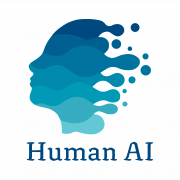Innovating to Transform Education and Promote Socio-Emotional Well-Being
On Monday, August 12, the Monterrico campus of the Peruvian University of Applied Sciences (UPC) became the hub for a crucial conversation about the future of education in Peru. Under the theme “What is Not Measured, is Not Improved: Keys to Strengthening Socio-Emotional Skills in Schools,” education and technology experts discussed how artificial intelligence (AI) can be a key tool to evaluate and develop students’ socio-emotional competencies, preparing them for the challenges of the 21st century.
In a post-pandemic world, educational institutions face the challenge of addressing the mental health and well-being of their students in a comprehensive manner. At the recent conference organized by CALA Education, experts in education and technology discussed how artificial intelligence can be a crucial tool to assess and develop socio-emotional competencies from an early age. This approach seeks not only to mitigate the effects of the pandemic, but also to prepare students for future challenges, both in their academic and personal lives.
The conference brought together leading specialists in education and innovation, who shared their experiences and visions on how technological tools can revolutionize education. María Beúnza, CEO of Human AI, started the conversation by presenting how Human AI can facilitate an objective and personalized assessment of socio-emotional competencies, crucial for academic and personal success.
Elías Neira, Coordinator of the Augustinian Education Commission in Latin America and advisor to CALA Education, stressed the importance of an education focused on emotional well-being, emphasizing that “without a clear and precise evaluation, it is difficult to identify areas for improvement and move forward in building an educational environment that fosters not only academic knowledge, but also the personal and emotional growth of students.”
For his part, Bruno Espinoza, Director of Saint George School, shared his experience in implementing programs that integrate socio-emotional development into the school curriculum. María Isabel Cifuentes, Director of Educational Quality at UPC, emphasized the importance of measuring these competencies to ensure educational quality, pointing out that “what is not measured, is not improved.”
v







The Importance of Developing Socio-Emotional Skills for Life
Currently, there is increasing scientific evidence on the importance of personality traits in areas of society that have a vital impact (Gutman & Schoon, 2013; Heckman & Kautz, 2012; Kautz et al, 2014; Roberts et al., 2007). In particular, these studies suggest that various personality attributes have a substantial influence on education: achievement, job status, productivity, job and life satisfaction, and health, among other areas.
A closely related concept to personality that should be introduced is that of soft skills or socio-emotional competencies, considered as the skills or competencies of the 21st century (Murnane & Levy, 1996), which are associated with personality traits (Kyllonien 2012). They are non-cognitive skills (for example, perseverance, self-control, or growth mindset) that facilitate efforts towards goal achievement, healthy social relationships, and appropriate decision-making. They also allow predicting people’s academic, economic, social, psychological performance, and physical well-being (Duckworth and Yeager, 2015).
Practical Applications
During the conference, practical cases were presented to demonstrate how Human AI is being used at various educational levels and in sports to effectively assess and develop socio-emotional skills. These tools enable teachers to intervene more effectively and personally, resulting in significant improvements in school environments and classroom dynamics.
Towards a More Holistic Education
The event highlighted that integrating technology, such as the Human AI platform, not only enables more objective assessments of socio-emotional competencies, but also paves the way for more effective and personalized interventions by both teachers and parents.
Through initiatives like this, the participating organizations reaffirm their commitment to leading educational innovation in the country. Further promoting the holistic well-being of students, and fostering an educational approach that encompasses all dimensions of human development.






